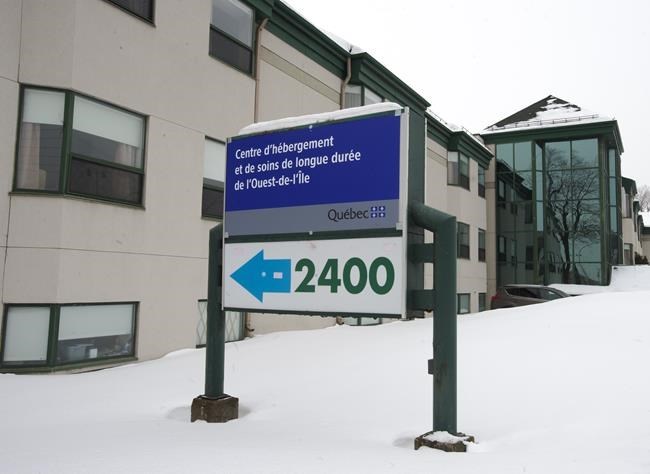MONTREAL — The owner of a Montreal long-term care home where 47 residents died during the first wave of the COVID-19 pandemic told a coroner's inquiry Wednesday she was relieved when government officials came to help.
Samantha Chowieri said she started asking the local health authority for help on March 27, 2020, after her staff at Résidence Herron began falling ill or went into preventive isolation and the facility's doctors refused to see patients in person to reduce contacts.
She said residents weren't getting the care they needed by March 29, the same day officials first showed up to lend a hand. The inquiry has heard that regional health authorities that day found residents dehydrated, unfed and soiled. The government later announced Herron would be placed under trusteeship.
“When the government arrived I felt hope for the residents," Chowieri said. Later during her testimony, however, she expressed shock when a health executive accused her of mistreating residents and implied she cared more about money than her clients. Chowieri administered Herron, which was owned by her family through Katasa Groupe, a Gatineau, Que.-based developer.
The coroner's mandate is to investigate 53 deaths in 2020 at six long-term care homes and one seniors' residence — including 47 at Herron — and come up with recommendations.
Chowieri said things didn't improve immediately under trusteeship and her role wasn't clear. She called the arrangement "bizarre," but she said she tried to help by getting her staff back to work. She said health officials did not include her in meetings and did not allow her to communicate with the families of residents.
She would remain at the residence until April 10, she said, adding that she stopped going because she was frustrated.
“With perspective, do I think we could have done more? I don't know,” Chowieri said, fighting tears and apologizing to the families.
Earlier Wednesday, Andrei Stanica, who oversaw the now-shuttered facility, said the replacement of experienced staff in January 2020 with workers from a temp agency and the lack of a director of care contributed to what happened.
But Stanica said he tried to ensure the best care. He said when he fell ill and left the facility on March 27, 2020, there were no reports of a catastrophic situation. The first positive case at the care home was declared that day.
Coroner Géhane Kamel said Wednesday that Herron's staffing woes seem to have been mitigated by the fact families had been taking care of residents, but then provincial health authorities banned visitors in mid-March 2020 to prevent the spread of COVID-19.
Chowieri said that on March 29 of that year, a lot of staff were scared and even concerned about delivering food trays to residents, and the employees who were supposed to have worked the previous night seemed to have left before their shifts were over. She said, however, she wasn't sure if they had abandoned their posts.
There was very little personal protective equipment in the building, Chowieri said, adding that the care home did what it could to prepare for the health crisis and followed government directives.
She said her family runs a series of seniors homes and PPE was in short supply everywhere. Chowieri said she had assumed the Health Department would provide workers and equipment as she said it had promised to do.
This report by The Canadian Press was first published Sept. 22, 2021.
Sidhartha Banerjee, The Canadian Press



